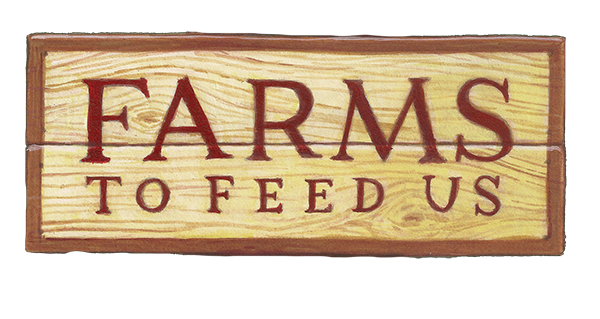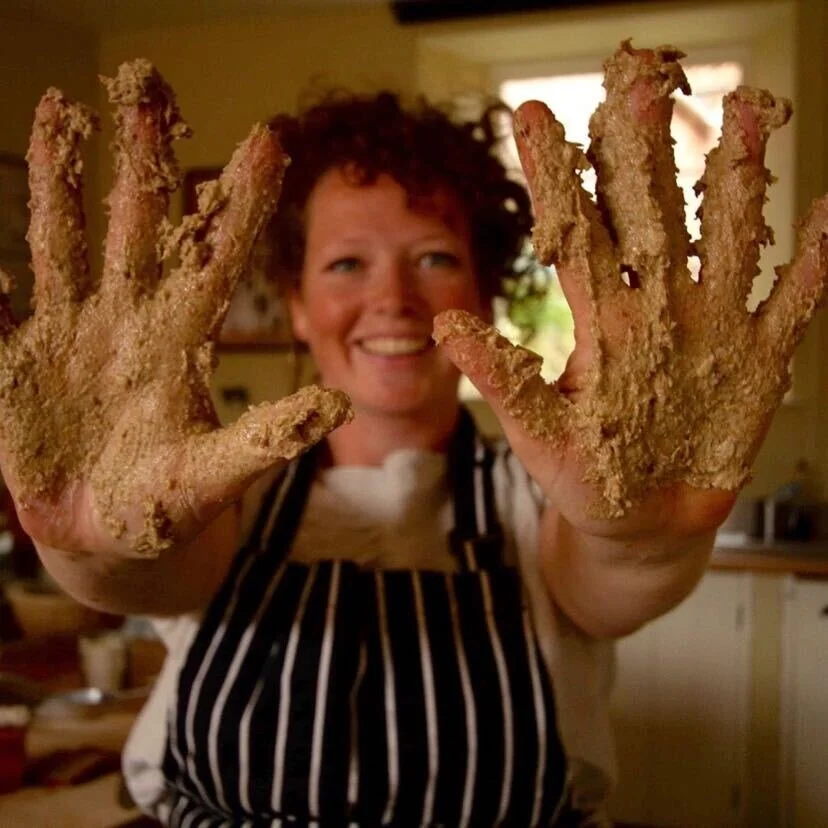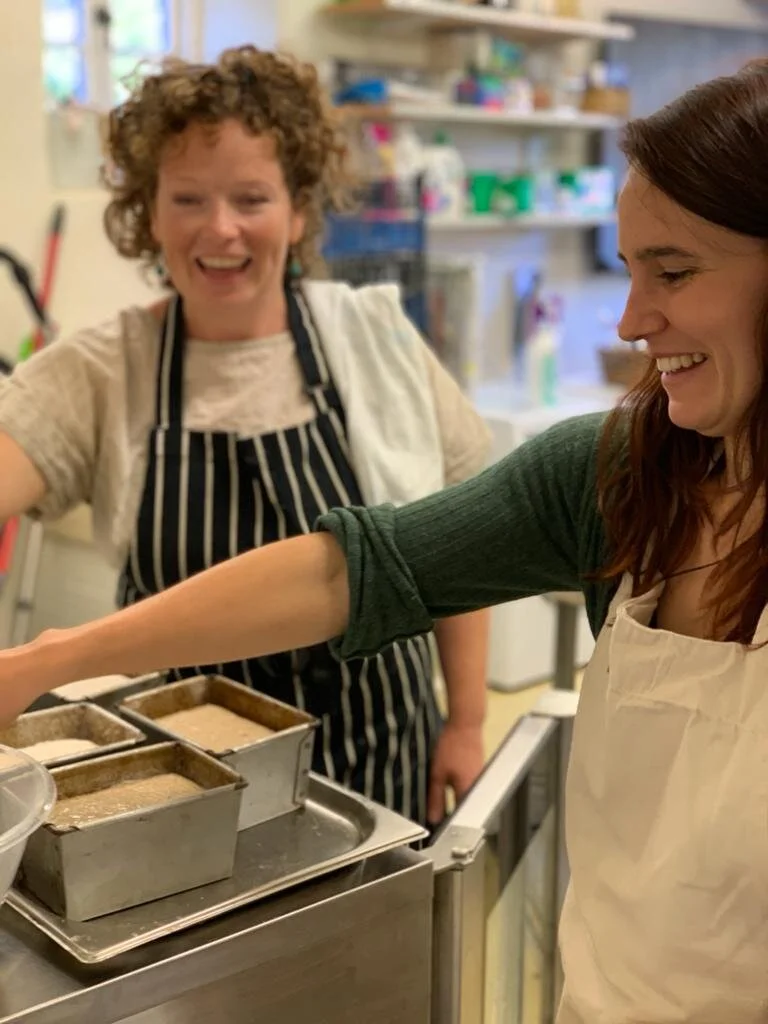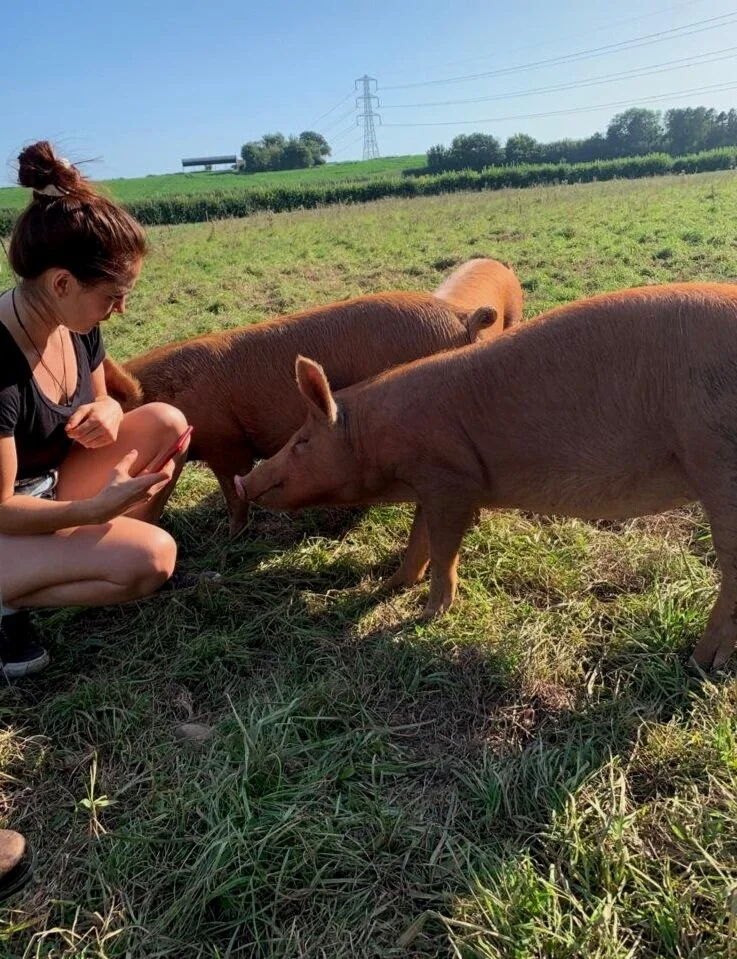The Anatomy of a Loaf of Bread
Not the Farmer’s Wife is our new column launching today by our storytelling editor and & projects manager, Olivia Oldham. She will share interviews, essays, & longer reads gathered day to day in her multi-faceted life as Project Manager for Farmerama Radio, & a recent graduate of a Masters in Nature, Society & Environmental Governance from the University of Oxford.
It was mid-September, and the last of the summer sun was slowly burning off the morning mist rising from rivers and fields between Reading and Bristol. I was on my way to Somerset, to visit Field Bakery, Bristol-based baker Rosy Benson’s new enterprise.
Field Bakery, located on Fred Price’s farm, Gothelney, is a teaching bakery, where Rosy gives classes in sourdough bread-making to beginners and experts alike. Having the bakery on the farm isn’t just a marketing ploy, though, it’s a fundamental part of Field Bakery’s model. The flour that participants in Rosy’s workshops use to bake their loaves is milled from grain that’s grown right there, in the fields at Gothelney. The idea is that, by drawing such an explicit connection between the farm and the bread that feeds us, participants will come away with an increased awareness of the interconnectedness of each part of the food system.
My trip to Gothelney meant a lot to me personally. It was my first time meeting Farms to Feed Us co-directors Cathy St Germans and Catherine Chong. I’ve worked with these two women throughout the lock-down and after, but hadn’t yet met them other than over grainy, glitchy Zoom calls. It was also a chance to meet Fred and Rosy, both of whom I’d interviewed for my recently-completed Masters thesis on the South West Grain Network, a loose network of farmers, millers and bakers who are developing a local grain economy in the region. There’s something really special, I think, about getting to see people in person now. It’s a special occasion, like going to see Santa as a child—you can write him letters, but only once a year do you actually get to go sit on his knee, and touch his beard to check if it’s real.
“The biggest change, and the most difficult, and the most transformative, has been to move away from a commodity big scale food system towards something that is—ultimately—more direct, more of a human-scale, and based around trust and understanding”
—Fred Price
Rosy welcomed us to the farm with cheese scones, bran muffins, and some much-needed coffee after my early start travelling from Oxford. The teaching space is light and airy, all high-ceilings and exposed brick, the doors thrown open to let the warm air in. Farm hands walked back and forth outside as Rosy talked us through the anatomy of a wheat seed, with the aid of a flipchart and several stalks of wheat leaning decoratively against the wall, giving new meaning to William Morris’ quip that you should never have anything in your home you don’t know to be useful or believe to be beautiful.
We mixed up two loaves that day. The first, a country sourdough, involved some tricky folding and shaping which my clumsy and unpracticed hands managed to mangle somewhat. The misshapen results were delicious nonetheless. There was much less risk of disaster with the second, a rye tin loaf, which turned out—dare I say it—tastier. It may not meet the visual aesthetics of the traditional sourdough boule, but it has its own charm. If nothing else, it’s easier to slice.
As our loaves rose in the prover, Rosy took us out into the fields, where we were met by Fred. Walking through a knee-high field of lucerne (also known as alfalfa), he leaned down and plucked the top from one of the plants, absent-mindedly rolling it between his fingers as he explained the purpose of the crop.
“[T]
rust has its own agency, it’s almost like a regulator for what we’re doing
”
—Fred Price
Fred grows the lucerne as a forage crop—that means it’s turned into silage and eaten by his pigs over winter—but it also has the added bonus of being a legume. Legumes are a wondrous family of plants that pull nitrogen out of the air and store it in the soil, through a process called ‘nitrogen fixing.’ Nitrogen-fixing plants do away with the need for synthetic nitrogen fertilisers which are harmful to the soil and the atmosphere—not to mention expensive. But it’s not just about the environment.
“Forget all the nice stuff about soil,” Fred said when I rang him and Rosy a week or so later for a chat. “The biggest change, and the most difficult, and the most transformative, has been to move away from a commodity big scale food system towards something that is—ultimately—more direct, more of a human-scale, and based around trust and understanding.”
That idea of trust is crucial to making the new working relationship between the two of them flourish. It’s built on a sense of shared values, an unwritten but deeply held mutual understanding of the problems with the status quo in food and farming, but also about what a solution might look like.
“Having you be on the farm makes me even more conscious of everything we’re doing,” Fred said to Rosy. “It absolutely isn’t just words that sound nice or showing the good bits and not the rest of the farm. There’s a real transparency that the relationship brings. So trust has its own agency, it’s almost like a regulator for what we’re doing, having Rosy down.”
Here, we start to get into what’s so revolutionary about bringing the baker to the field.
“For bakers, I’m pretty sure that most don’t really question that much about where their main ingredients come from—flour, salt, sugar,” Rosy said. By inviting bakers out to the farm, she aims to highlight to them the importance of knowing more about their ingredients. She hopes that they leave the farm having “some kind of connection to the land that it comes from, and understanding more about the systems that they’re part of.”
“It’s a good form of learning—by experiencing something. I think it can be valuable, it might push you to think about that more in the future when you buy things but also when you talk to people”
—Rosy Benson
This goes for amateurs like me, too. Rosy and Fred’s idea is that learning to bake on the farm where the grain is grown could permanently change the way workshop participants think about food. “It’s a good form of learning—by experiencing something. I think it can be valuable, it might push you to think about that more in the future when you buy things but also when you talk to people,” she said.
Learning by doing is a powerful thing. It’s easier to remember to coat my hands with a bit of water before plunging them into the dough, like Rosy taught me to do, when I’ve stood in the kitchen at Gothelney with her, laughing at my sticky, doughy hands. In my academic research I’ve explored the potential for forming a connection with food production and producers remotely, through podcasts like Farmerama Radio’s award-winning ‘Cereal’ series. But standing out in the field, stroking the rough ginger backs of the pigs, watching the pure joy with which Fred rubs their bellies, I was left in little doubt that this was a different kind of connection altogether.
Making the connection between the wheat in the fields and a loaf of bread on the table isn’t just revolutionary for people who bake and eat bread, though. It can also be a huge shift in perspective for the farmer.
“Forget other people being on the farm, I think the actual farmer having that experience is totally radical for them,” Fred said. A lot of farmers, he explained, have had to learn to see what they produce in a different way—to see it as food. “Isn’t that bonkers? ...We had these massive areas in cultivation and productivity and we didn’t really associate it with eating stuff. If that’s the level of the disconnect, then we’re in real trouble.”
“We had these massive areas in cultivation and productivity and we didn’t really associate it with eating stuff. If that’s the level of the disconnect, then we’re in real trouble.”
—Fred Price
Amidst all this talk of connection and learning to know and grow good food, an important question remains: who gets to experience it? With important conversations happening all around about race, class and gender, and the barriers many people face in terms of accessing both farming and the kind of quality food that Fred and Rosy produce, this is a question that I can’t ignore.
Fred is very clear on this point.
“One of the provocative questions we are always asked about this alternative food system is: ‘Is it just a boutique, expensive, inaccessible project that can’t feed the world?’ And, for me, this is actually a way of answering that question directly, on the ground. Because once people see how we farm, they have an appreciation for different kinds of value that this food system embodies. It’s about community as much as it is about ecosystems and nature and nutrition … and it’s just such an easy way to communicate that, and start spreading the message that food can be really transformative for our planet and our society. Is having a few people every month really transformative? I think, actually, yes…. And it’s the sort of scale of influence I can have.”
“
Is having a few people every month really transformative? I think, actually, yes…. And it’s the sort of scale of influence I can have.”
—Fred Price
What Fred says speaks to a broader tension in a lot of activism—and make no mistake, what Fred and Rosy and the rest of the SWGN are doing is activism, albeit of a different kind to what most people might associate with that term—and that is a tension around scale. A lot of activists believe that what needs to be fixed, ultimately, before anything else can change, are the large-scale structures shaping our society—institutional racism and white supremacy, neoliberalism, the legacies and ongoing dynamics of colonialism. Others, including activist geographers such as J.K. Gibson-Graham, argue that an overly narrow focus on just the overarching problematic structure—in their case, capitalism—risks missing the broad and diverse constellation of alternative ways of doing things that already exists.
I’m not sure I fully subscribe to either of those two positions. Can a single bakery, or a single farm fundamentally shift large-scale political structures that disproportionately disadvantage certain members of our society based on the colour of their skin, their class, or their gender? Alone, perhaps not. But I would argue that’s an unreasonable expectation, which actually individualises responsibility for more systemic issues. On the other hand, is a project like Field Bakery a crucial part of a larger-scale movement of meaningful, positive change? I think it absolutely is.
“It feels exciting to be doing something that’s not the status quo, a bit more radical. It feels risky, but it’s fun.
”
—Rosy Benson
A single seed of wheat can, within 5 years, yield over 3 trillion seeds. Rosy & Fred talk about the potential for attending a class at Field Bakery to shift peoples’ consciousness & to have a ripple effect by changing the way they communicate with others about food. Similarly, by linking up with other nodes in the network, other stars in the constellation—like the newly established South East Grain Alliance, or the field bakery Henrietta Inman is establishing at Wakelyns Agroforestry in Suffolk—I think there is the potential for these small-scale alternatives to become revolutionary.
Coming home on the train that evening, with three loaves of bread steaming gently in my backpack next to a small jar of sourdough starter and a bag of Gothelney flour that I had milled three hours before, I felt enlivened. As Rosy said to me, “It feels exciting to be doing something that’s not the status quo, a bit more radical. It feels risky, but it’s fun.”
Images 5 from @grummettscott; image 2 from @gothelneyfarmer - thank you! All other images taken by @cathystgermans & @olivia.oldham.







